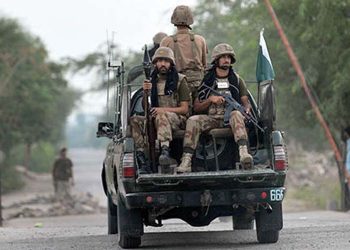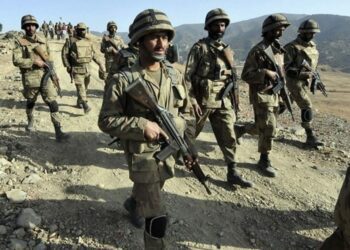In Pakistan—a society that places immense value on family honor, religious piety, and cultural modesty—some of the deepest betrayals are unfolding behind closed doors.
In a chilling contradiction to these ideals, a disturbing number of rape cases now involve perpetrators from within the victim’s own family: fathers, brothers, uncles, and cousins. The very individuals entrusted with protection are too often the abusers.
This breach of trust not only shatters lives but tears at the moral fabric of our society. Yet, even more harrowing than the abuse itself is the silence that surrounds it. Victims are pressured into submission through threats, guilt, and shame, while families, fearing dishonor, often choose concealment over justice. Public outrage is loud when it comes to moral decline, yet it rarely dares to speak of the decay within our own homes.
But this betrayal is not limited to the private sphere. A parallel crisis is playing out in our public institutions—those tasked with protecting our natural heritage. Just as families hide abuse to preserve reputations, officials and agencies often enable environmental exploitation in pursuit of power or profit. The case of Margalla Hills National Park (MHNP) is a stark example.
Despite clear orders from the Supreme Court to eliminate illegal encroachments, commercial activity continues to scar this ecologically rich sanctuary. The culprits are not faceless outsiders but insiders—developers with powerful backers, bureaucrats who look the other way, and institutions riddled with inertia. The Islamabad Wildlife Management Board (IWMB), responsible for safeguarding the park, lacks the authority to penalize violators. The Capital Development Authority (CDA) frequently hinders protective efforts. And on the Khyber Pakhtunkhwa side of the Margalla Hills, property developers face virtually no checks, freely laying concrete over ancient ecosystems.
This pattern repeats across the country. Ayubia National Park is threatened by illegal logging and uncontrolled tourism. Chitral Gol National Park, home to the endangered snow leopard and markhor, is vulnerable to mining and poaching. Hingol National Park, one of the largest in South Asia, faces constant encroachment from infrastructure projects. In each case, those responsible for preservation are either complicit—or absent.
The extent of this institutional decay was brought into sharp focus during a recent meeting of the National Assembly’s Standing Committee on Climate Change and Environmental Coordination. Chaired by MNA Munaza Hassan, the committee sounded the alarm over commercial operations within MHNP. Officials revealed that 48 eateries and shops are generating over half a ton of solid waste daily—most of it unmanaged. Shockingly, 27 of these establishments lack proper sewerage systems, discharging untreated waste directly into natural reserves, including Rawal Lake—Islamabad’s key water source.
Lawmakers condemned the lack of coordination among the CDA, IWMB, and Pakistan Environmental Protection Agency (Pak-EPA). Without unified enforcement, they warned, the park’s future is at grave risk. While the CDA insists MHNP’s boundaries were clearly marked in 2023, conflicting reports and the absence of a viable management plan tell a different story. Though a new zoning initiative is in the works with WWF and IUCN, it will mean little without the political will to see it through.
Questions of leadership further cloud the picture. The committee scrutinized the dual appointment of Mrs. Nazia Zaib—a Joint Secretary in the Ministry of Climate Change—as Director General of Pak-EPA. While she defended her background in plant sciences and administrative experience, lawmakers expressed concern over her capacity to lead the agency effectively. Even more troubling, her trusted subordinate is reportedly issuing illegal No Objection Certificates (NOCs) and making suspect decisions that undermine Pak-EPA’s mandate. Meanwhile, rumors abound regarding fresh NOCs issued for New Islamabad Enclave and a resort within MHNP—clear violations of Supreme Court directives.
The dysfunction doesn’t stop there. Dr. Rana Imran Sikandar, Executive Director of PIMS Hospital, disclosed that the facility produces 1,000 kilograms of medical waste daily—20% more than its incinerators can handle. The surplus is outsourced to private contractors, raising concerns about oversight. Private clinics and labs, it appears, are also disposing of waste with minimal regulatory control. Though Pak-EPA insists only licensed handlers are permitted, its capacity to enforce such rules is weak at best.
Perhaps the most egregious betrayal came with the suspension of Pak-EPA’s permanent Director General. Her alleged offense? Refusing to grant an NOC for the import of a banned soybean-based poultry feed, reportedly requested by a well-connected crony of a senior official. In her absence, individuals long associated with unethical practices—dubbed the “blue-eyed boys” of the interim setup—have been handed influential roles. These appointments appear less about merit and more about manipulating the system to serve entrenched interests. It’s betrayal, rebranded and institutionalized.
Adding insult to injury, WWF-Pakistan has recently raised red flags over the suspected export of snow leopard cubs—an act that, if true, amounts to nothing short of ecological treason. Alarmingly, a politician and Pakistan’s so-called “Wildlife Ambassador” is rumoured to be involved, allegedly acting on behalf of the little-known, heavily foreign-funded Snow Leopard Foundation Pakistan, a self-declared ‘science-based’ organization. Despite significant resources and taxpayer-funded trips abroad, this individual’s achievements remain elusive. Exporting endangered cubs would be an unforgivable betrayal—not by poachers, but by those supposed to protect them.
Across both personal and institutional domains, the pattern is unmistakable. The greatest threats we face are not from beyond our borders, but from within. Whether it’s the abuse of children in the home or the destruction of protected land, the damage is being done by those we trusted most.
Pakistan’s real crisis is not just moral or environmental—it is a collapse of accountability. To begin healing, we must first confront the rot within. That means strengthening institutions, demanding transparency, and holding even the most powerful insiders accountable. We must build a society that protects its daughters and its forests with equal resolve.
Until we do, our most sacred spaces—whether a child’s home or a national park—will remain heartbreakingly vulnerable.



























